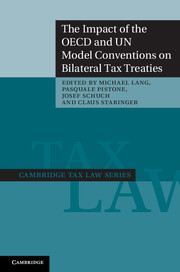Book contents
- Frontmatter
- Contents
- Contributors
- Preface
- Table of cases
- Table of statutes
- General report
- 1 Argentina
- 2 Australia
- 3 Austria
- 4 Belgium
- 5 Brazil
- 6 Canada
- 7 Chile
- 8 China
- 9 Colombia
- 10 Croatia
- 11 The Czech Republic
- 12 Estonia
- 13 Finland
- 14 France
- 15 Germany
- 16 Hong Kong
- 17 Hungary
- 18 India
- 19 Italy
- 20 Lebanon
- 21 Liechtenstein
- 22 The Netherlands
- 23 New Zealand
- 24 Norway
- 25 Peru
- 26 Poland
- 27 Portugal
- 28 Romania
- 29 The Russian Federation
- 30 Serbia
- 31 Slovakia
- 32 Slovenia
- 33 Spain
- 34 Sweden
- 35 Uganda
- 36 The UK
- 37 The USA
- Index
- References
25 - Peru
Published online by Cambridge University Press: 05 November 2014
- Frontmatter
- Contents
- Contributors
- Preface
- Table of cases
- Table of statutes
- General report
- 1 Argentina
- 2 Australia
- 3 Austria
- 4 Belgium
- 5 Brazil
- 6 Canada
- 7 Chile
- 8 China
- 9 Colombia
- 10 Croatia
- 11 The Czech Republic
- 12 Estonia
- 13 Finland
- 14 France
- 15 Germany
- 16 Hong Kong
- 17 Hungary
- 18 India
- 19 Italy
- 20 Lebanon
- 21 Liechtenstein
- 22 The Netherlands
- 23 New Zealand
- 24 Norway
- 25 Peru
- 26 Poland
- 27 Portugal
- 28 Romania
- 29 The Russian Federation
- 30 Serbia
- 31 Slovakia
- 32 Slovenia
- 33 Spain
- 34 Sweden
- 35 Uganda
- 36 The UK
- 37 The USA
- Index
- References
Summary
The relevance of the OECD and UN Model Conventions and their Commentaries for the interpretation of Peruvian tax treaties
Since 2001 the OECD Model Tax Convention on Income and on Capital (OECD Model) was meant to be used by Peru as a basic proposal in its future tax treaty negotiations as a way to: 1. facilitate the technical work of the Peruvian negotiators; and 2. provide criteria or guidelines that would survive changes in government. Since no administrative or judicial pronouncements recognize the interpretive value of this model, it is not treated here as relevant for interpretive purposes. Although it is interesting to note that an annex published together with the description of the model compares the Peruvian Model to the OECD Model and includes a number of explanatory notes on the differences between the two, it is the author's opinion that neither these explanatory notes nor the Peruvian Model itself allows us to interpret the scope of the tax treaties signed by Peru.
As to whether Peru has any case law, administrative practice or scholarly opinion on how the OECD Model and the United Nations Model Double Taxation Convention between Developed and Developing Countries (UN Model), as well as the Commentaries thereto, fit into the rules on treaty interpretation, Peruvian case law states that international agreements ratified by Peru – tax conventions included – shall prevail over domestic laws. This approach has been confirmed by many Tax Court decisions which, while not constituting mandatory jurisprudence, uphold the principle that international agreements prevail over domestic laws.
- Type
- Chapter
- Information
- Publisher: Cambridge University PressPrint publication year: 2012

